Rabbits are beautiful creatures that many people view as ideal pets. They’re adorable, loving, and seemingly low maintenance — or are they?
While bunnies are beloved animals with many positive attributes, there are some downsides to having them as pets. In fact, owning a rabbit and keeping it in a cage can actually be harmful to them. Still, they are a relatively common household pet, especially in homes with children.
While owning a rabbit can be an exquisite experience, it can also be damaging to the animal in some cases. As lovely as they are, here are 10 reasons not to avoid getting a rabbit as a pet.
1. Bunnies Often Suffer as Pets
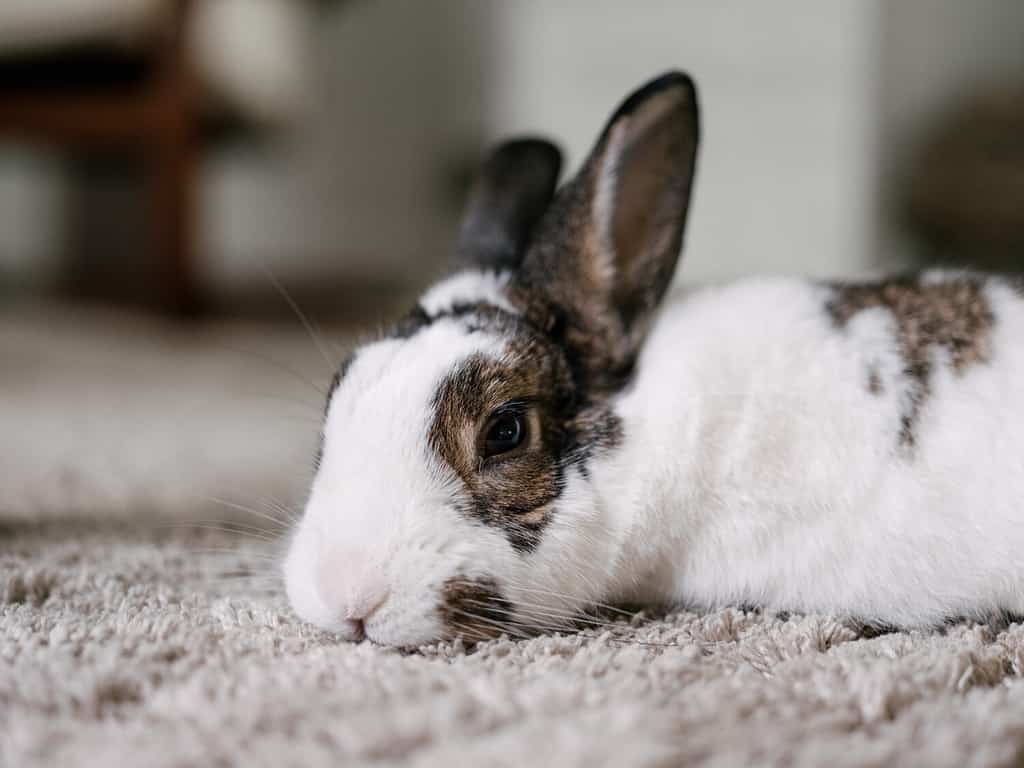
If not cared for properly, many rabbits will suffer as household pets.
©Oakland Images/Shutterstock.com
Unfortunately, rabbits often end up suffering as pets. If you don’t provide a bunny-proofed environment for your pet rabbit, you can end up putting them in danger. Not only that, but many bunny owners simply purchase a cage (often a small one) and assume it will make a warm and inviting home for their rabbit. However, these furry animals require space to roam and play. Experts recommend providing your rabbit with enough space to run around and separate areas to eat, sleep, and use the bathroom. If this doesn’t seem doable for you, you should think twice about adopting a bunny.
2. Rabbits Don’t Like Being Held or Cuddled
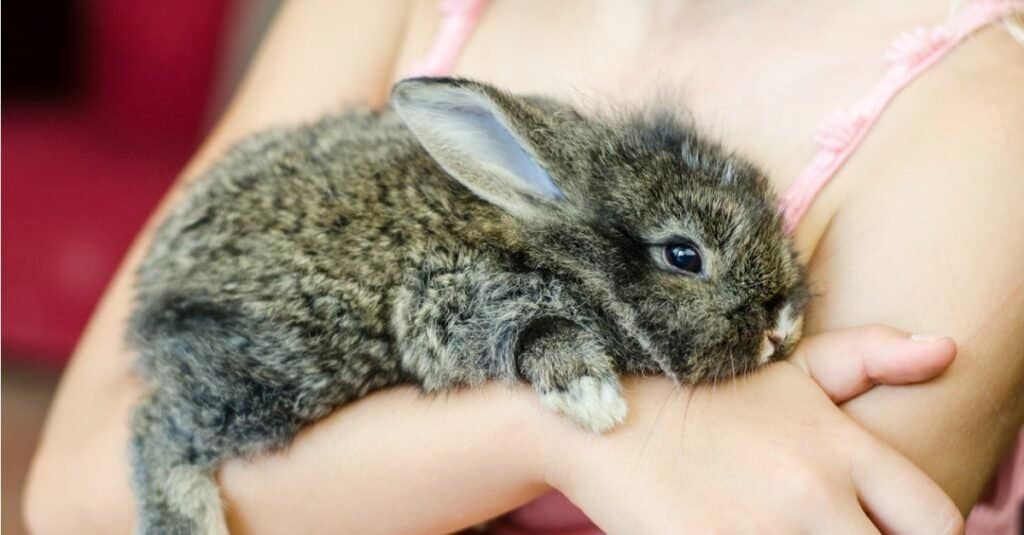
While domestic rabbits are more social than wild rabbits, they don’t typically love being held.
©iStock.com/KatarinaGondova
Many aspiring pet owners want to adopt a sweet furry friend for companionship. They seek a loving, warm, and cuddly creature to call their own. However, not all animals make affectionate pets.
While it might be tempting to cuddle a precious bunny, rabbits don’t typically enjoy being held. In fact, they will often squirm when you try to hold them. These fragile creatures do love attention, but they also crave physical space and freedom to play. That being said, if you bring them into an overwhelming environment or expect to get cuddle time with them, you might be let down by the bunny’s lack of desire to cuddle with you.
3. Bunnies Need Lots of Attention to Avoid Depression and Loneliness
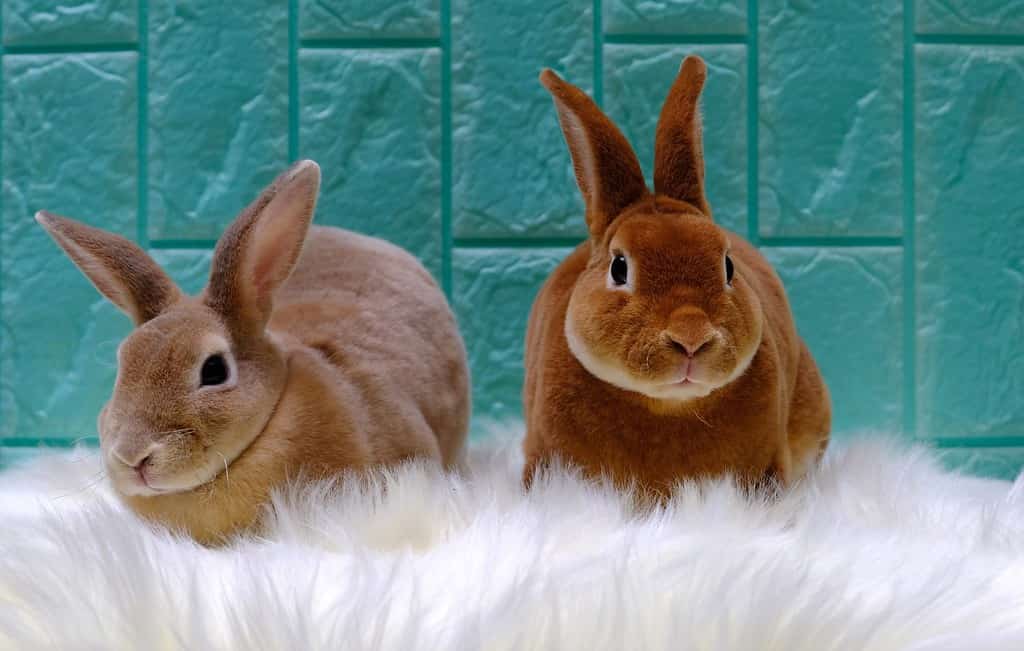
Socializing your bunny is important to ensure its emotional needs are met.
©ansoz/Shutterstock.com
While they don’t usually enjoy being held, bunnies do still crave attention and stimulation. If left alone in a cage for hours on end, they can become depressed and lonely, which can be hard on the rabbit. All living beings require some sort of love and affection, but giving this to a rabbit is a delicate balance, as they’re also fragile and don’t love physical touch. Rabbits are not the best pets for those with busy schedules or who don’t have enough time and space to let the animal explore its surroundings.
4. Rabbits Get Sick Often
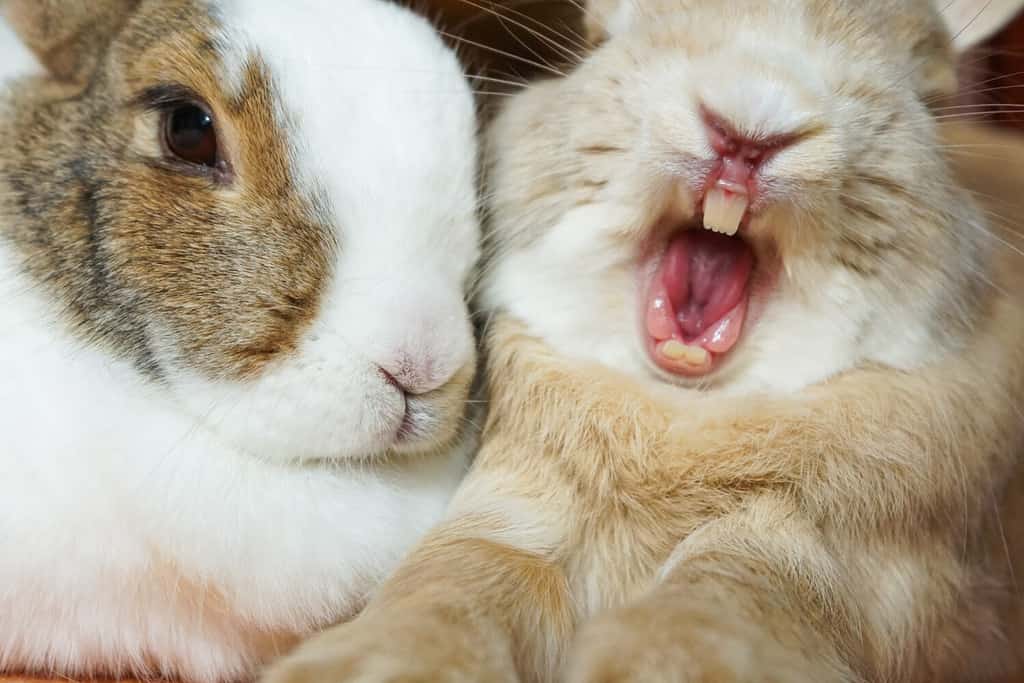
If your bunny seems more tired than usual, this might be an indication of illness.
©Thurid_with_th/Shutterstock.com
Rabbits are vulnerable creatures that can die quickly if they become ill. As prey animals, their defense mechanism is actually to hide their symptoms, so you might not realize they’re sick until it’s too late. This can be heartbreaking for both the bunny and your family.
Some symptoms of a sick rabbit include runny eyes or nose, sneezing, labored breathing, slow movement, or hiding. You might also notice a change in your bunny’s eating and drinking habits, as well as behavioral shifts. If you detect any of these signs, take your rabbit to the vet right away so they can run tests and provide the proper treatment.
5. Bunnies Can Be Destructive
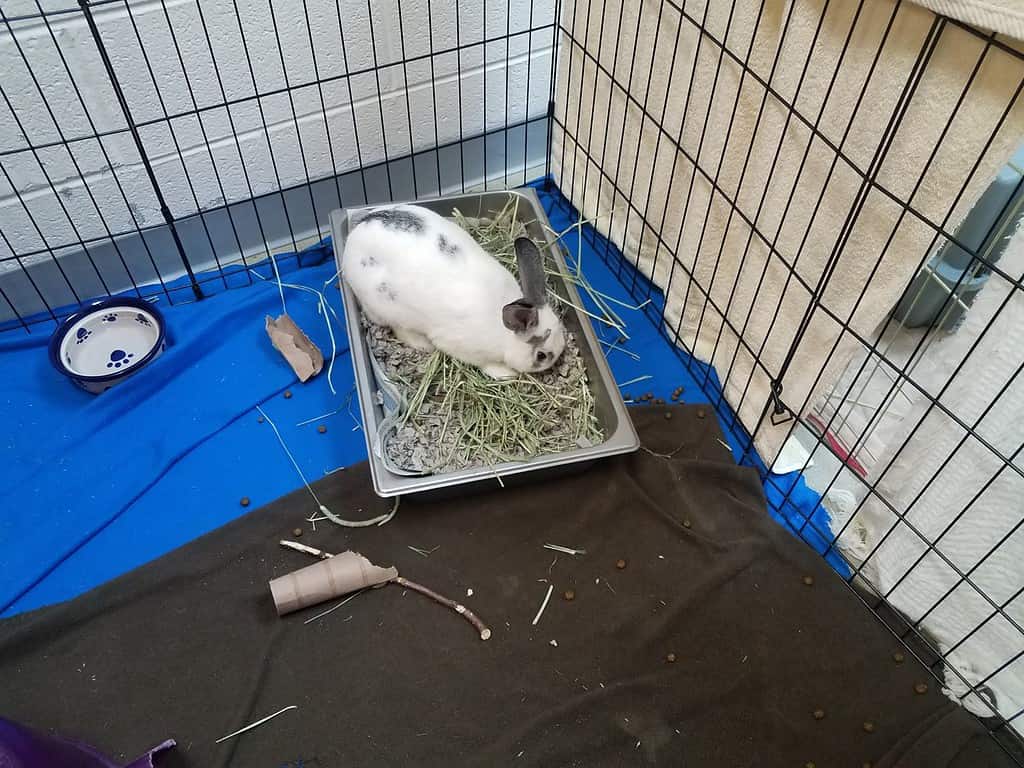
Bunnies can dirty up your home with destructive behaviors.
©stockphotofan1/Shutterstock.com
Rabbits can be destructive pets, chewing on corners of walls, trimming, and even cables or wires, which can be especially dangerous. As a result, many people will keep their rabbits locked in a cage for most of their lives. However, as noted earlier, this can be detrimental to the bunny’s overall health and well-being, as they need space to play and time with others. Bunnies aren’t meant to remain confined in solitude, but when they are out and about, they will instinctually wreak havoc within your home.
6. Rabbits Have Complex Diets

Many people assume that rabbits have simple diets, but they actually eat a specific diet.
©UNIKYLUCKK/Shutterstock.com
Bunnies are herbivores and require a balanced diet of various grasses, vegetables, and plant matter. Not only that, but you are putting their health at risk if you make any sudden changes to their meals.
Baby bunnies live off of their mother’s milk for quite some time. Eventually, they begin consuming solid food as their digestive system becomes less sensitive. Once they’re older, they will eat different types of hay, fruits, and vegetables. However, even feeding your bunny too many vegetables can cause digestive distress and stomach issues. A balanced diet of grasses and hay is crucial to keep your furry friend, healthy, and happy.
7. Bunnies Shed a Ton
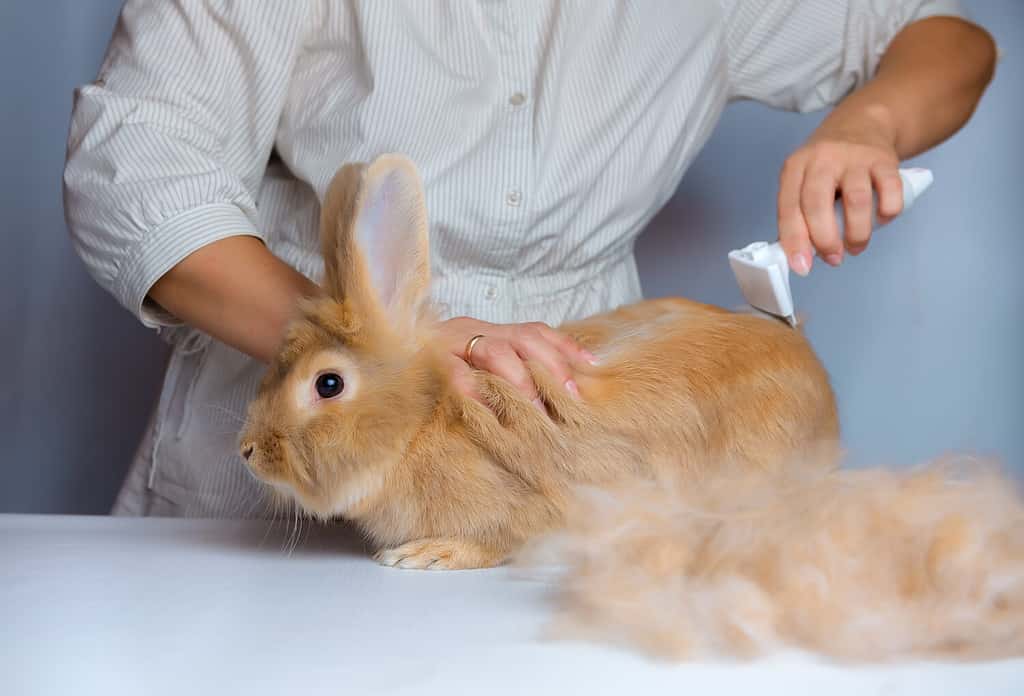
Frequent brushing can help your bunny with excessive shedding.
©Irina Skalskaya/Shutterstock.com
One of the peskiest concerns pet owners face is the abundance of hair throughout their homes. If you want your house to remain clean and free of dander, especially if you have young children or individuals with respiratory issues, you might not want to adopt a bunny. Rabbits molt frequently (at least twice a year), often shedding large amounts of hair. Even if you frequently clean your home, this can still become a nuisance to those you live with.
8. Rabbits Are Too Fragile to Be a Family Pet
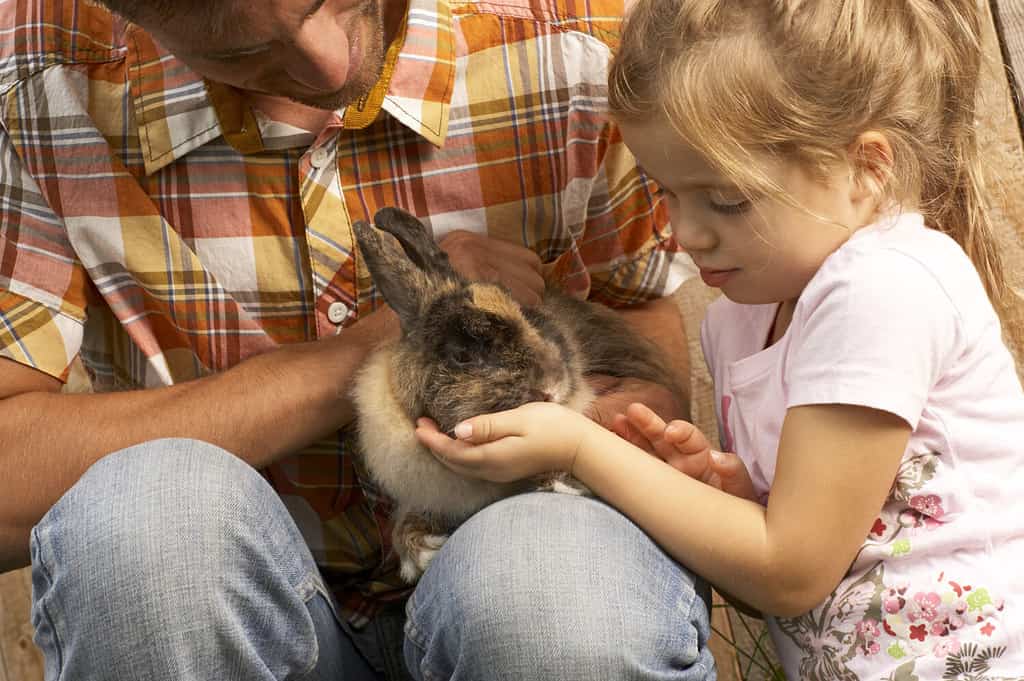
If you adopt a rabbit into your family with small children, ensure your kids are gentle when handling the pet.
©Altrendo Images/Shutterstock.com
Many parents will buy pet rabbits for their children, assuming it would be the perfect low-maintenance furry loved one to add to the family. However, this couldn’t be further from the truth. Bunnies are fragile pets. If held too tightly or handled with aggressiveness, you can easily hurt the animal. Many times children will unintentionally harm a rabbit by playing with it or trying to cuddle it. If you’re considering adopting a bunny for your kids, keep in mind that this can be detrimental to the rabbit.
9. Many Pet Stores Buy Bunnies Too Young
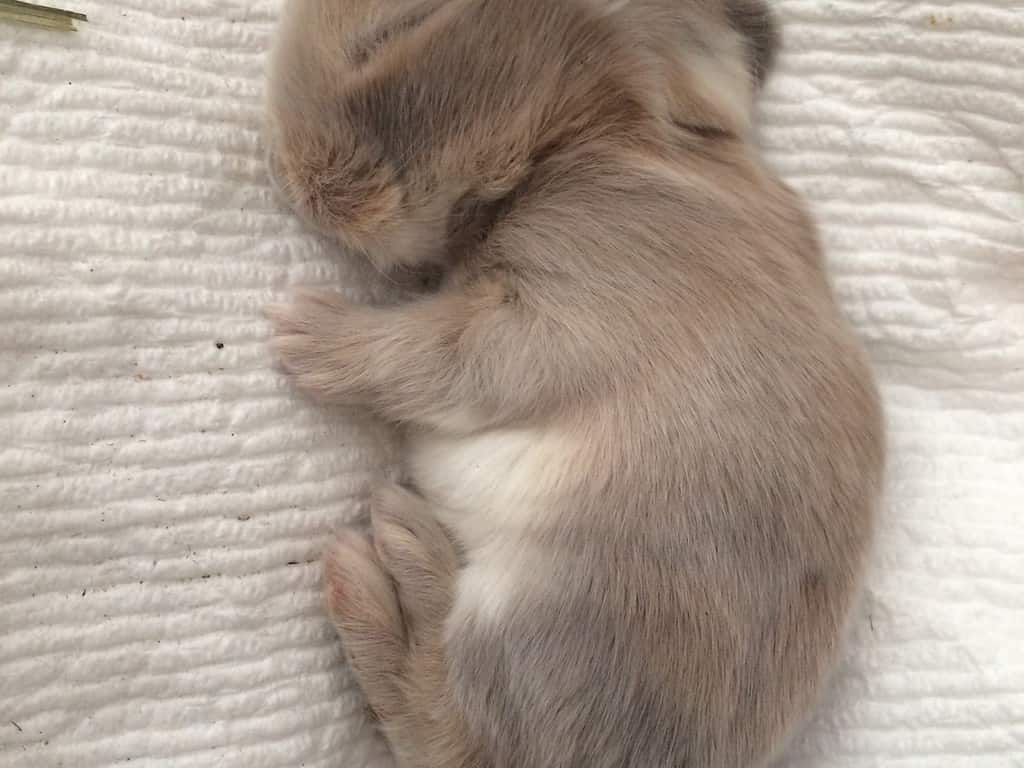
Baby bunnies need their mothers for at least the first 6 to 8 weeks of life.
©Ellethwen Rue/Shutterstock.com
Unfortunately, many pet stores or sellers will purchase bunnies too young, taking them away from their mothers before the appropriate age. This can cause detrimental health issues to the rabbit, as baby bunnies need to slowly wean off of their mother’s milk to avoid digestive issues and other health concerns.
Additionally, some stores do not treat bunnies with the necessary love and care. Often, they house multiple rabbits in one cage and fail to keep it clean. Bunnies need a healthy environment to thrive, and getting a rabbit from an inhumane establishment means you are directly supporting this type of treatment. If you must adopt a rabbit, choose a reputable animal shelter or foster owner that prioritizes the health of the animal.
10. Rabbits Require Specialized Veterinary Care
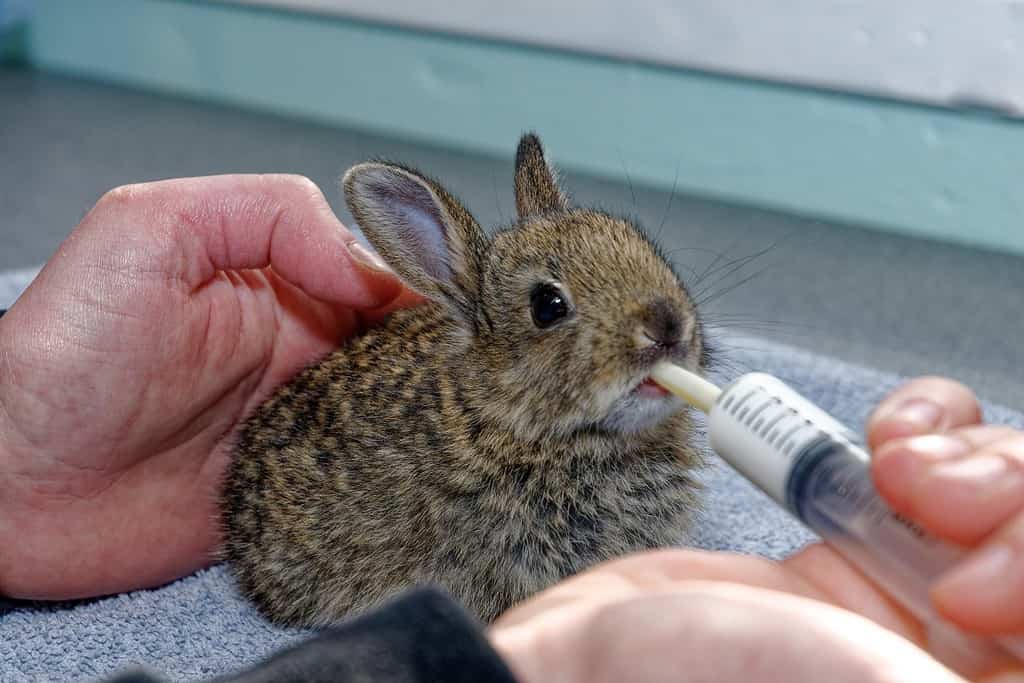
Getting the right care for your pet rabbit is crucial to ensuring a healthy and long life.
©Colin Seddon/Shutterstock.com
While some vets will treat bunnies, many do not provide the specialized care they need. Rabbits often require exotic or small animal vet care, which isn’t as easy to access as regular veterinary care. Especially in the case of an emergency, it might be difficult to find the appropriate treatment to help your furry loved one.
Considering Adopting a Rabbit as a Pet?
If you’ve made it this far and are still interested in getting a rabbit, there are ways you can ensure a fulfilling life for the animal. Keeping the above considerations in mind, make sure you cover all your bases when adopting a bunny, such as researching suitable food/diet, finding the right vet in your area, and setting up a bunny-proof environment for your rabbit to explore. As always, only adopt a rabbit from a humane and reputable resource.
The photo featured at the top of this post is © Rabbitti/iStock via Getty Images
Thank you for reading! Have some feedback for us? Contact the AZ Animals editorial team.







